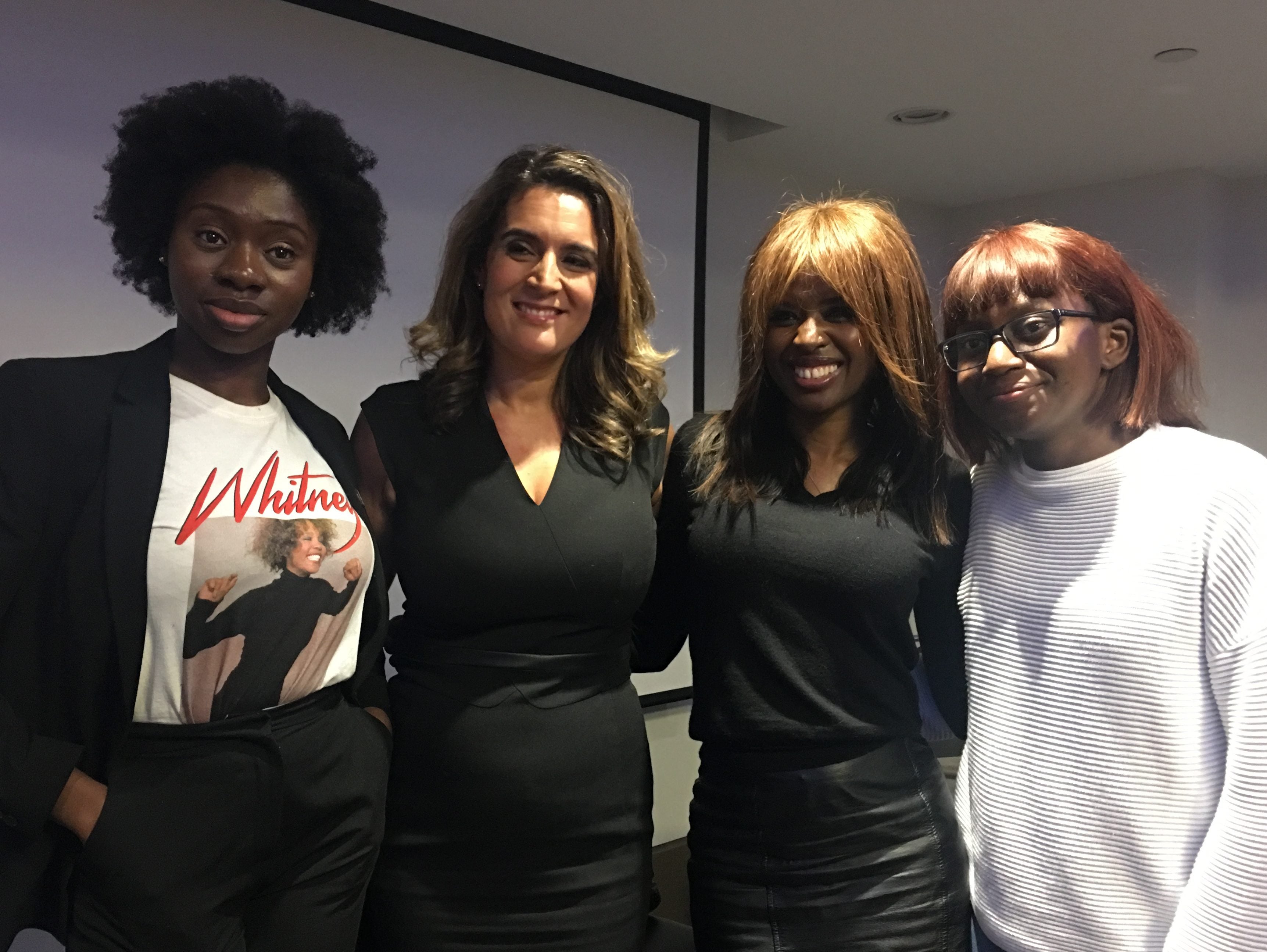
Diversity in the media has “a very long way to go” and unpaid internships continued to bar young people from poorer backgrounds from becoming journalists, diversity campaigner and broadcaster June Sarpong has said.
“The media is self-selecting – with the result that newsrooms are not reflective,” argued Sarpong at a Q&A with BBC journalist Samantha Simmonds organised by the London Press Club last night.
“Editors and gatekeepers need to realise that there’s a slew of talent out there that could bring a whole new market,” said Sarpong.
“Over half the journalists are from Oxbridge and 64 per cent from private schools. And if you are a woman of colour and working class and you haven’t got rich parents to pay internships, you are clearly at a disadvantage.
“[The] industry needs to realise we are losing out and take the lead from the law – or even engineering”.
Sarpong was discussing her new book Diversify – Six Degrees of Integration, with new research from Oxford University, at the event in Grange City Hotel, London.
“There is a huge lack of diversity in our industry,” she said, making the argument for “positive discrimination”.
“People don’t like it but when you look at all the data, all the research, it works,” she said, referencing Labour’s all-women shortlist which saw “large numbers of women” coming into Westminster.
“If you don’t want quotas, you should at least have targets so everyone knows what we are working towards. You would never have a company that didn’t have financial targets,” Sarpong said.
“For businesses, it’s enough talk – put your money where your mouth is – because we are not reflecting society in any shape or form.”
London Press Club chairman Doug Wills, hosting the event but speaking as managing editor of the Evening Standard and Independent, said he agreed that executives had in the past appointed like-minded people from the same backgrounds.
“But there is change”, he said, referring to his newspapers’ launch of a diversity apprenticeship scheme. He said other publishing and television groups were also now looking to run similar non-graduate apprenticeship schemes.
“The argument can be made that it makes professional and commercial sense, as well as morally being the right thing to do. We weren’t embracing the breadth of society we want to attract as readers.” he said.
Sarpong was joined on the panel discussing diversity by two young journalists, Adebda Lamuye, an Evening Standard editorial apprentice, and Tobi Oredein, editor of Black Ballad.
Oredein said: “I am so against free, unpaid internships. I did it but it was such a demoralising experience. It’s part of the free-for-all attitude in journalism where the bosses expect you to work for free.”
Sarpong said she was inspired to write her book, dealing with groups disenfranchised on grounds of race, class, gender/sexuality, disability and age, by an experience while filming in Las Vegas.
“A young man appeared on the set who was covered in tattoos and gang markings, and I have to be honest I was intimidated by him, nervous about him and started acting very strange as a result. And for the first time, I really understood prejudice from both sides,” she said.
“If I was feeling like this around this young guy, what hope had he got.”
With 20 years in TV, Sarpong has hosted many events, including Make Poverty History in London’s Trafalgar Square and Nelson Mandela’s 90th Birthday celebrations alongside Will Smith in London’s Hyde Park.
She has worked extensively with HRH Prince Charles for 10 years as an ambassador for his charity the Prince’s Trust.
She is the co-founder of WIE UK (Women: Inspiration & Enterprise) and in 2007 was awarded an MBE for services to broadcasting and charity.
Email pged@pressgazette.co.uk to point out mistakes, provide story tips or send in a letter for publication on our "Letters Page" blog
